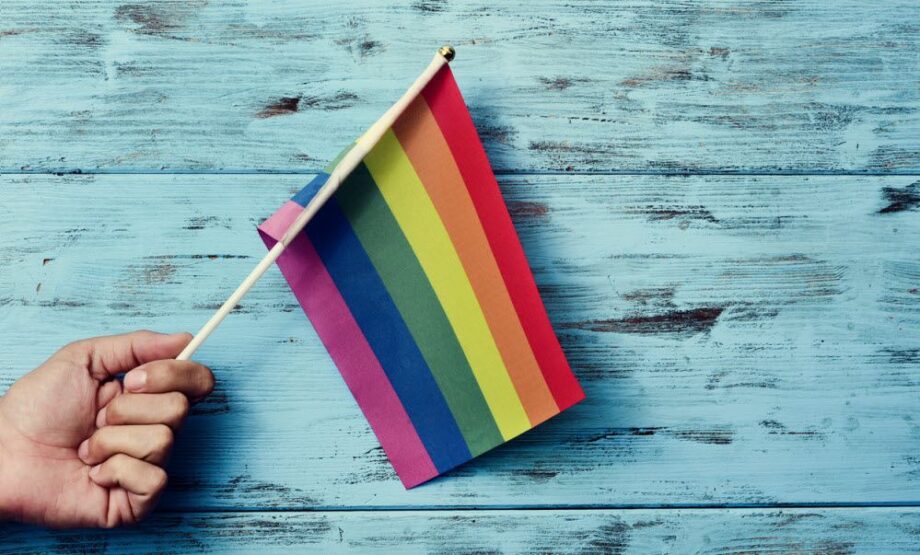Body image
5 Transgender Issues That Affect Us All
The issues that transgender people face are often ones that often affect all of us in some way. Here are five very vital transgender issues that have an impact on everyone, regardless of their gender, gender identity or sexuality.
If you are not transgender or gender non-conforming yourself, it can be tempting to relegate a lot of things into "transgender issues." Done. Doesn't affect you and you don't have to worry about it. Right?
Not so much. The issues that transgender people face are often ones that often affect all of us in some way. Here are five very vital transgender issues that have an impact on everyone, regardless of their gender, gender identity or sexuality.
Discrimination at Work
Many transgender folk - binary or not - face issues at work. Sometimes, this occurs during their transition. Sometimes, it occurs when they are read as their true gender. (For example, if a transgender woman now gets read commonly by her colleagues as a woman, there might be different expectations for her at work - such as doing more emotional labor, having male colleagues taking credit for her accomplishments, and so on.) Sometimes, the issues come from the customer or client side - a client may refuse to work with a transgender person, or complain that the person was unhelpful, inappropriate, or otherwise jump to conclusions. While 18 states and the District of Columbia do have state and local laws expressly prohibiting discrimination based on gender identity, these prohibitions vary in what they cover. And many transgender people will tell you that they face or have faced some form of discrimination.
Why does it matter? Workplaces should be safe spaces for everyone. A culture of harassment can breed a toxic workplace, making it less comfortable for everyone.
The Right to Change Your Name
In the United States, a person can change their name for any reason. The problem is, when a transgender or gender non-conforming person does it, the same rules may not apply. For example, showing up for a court date as a transitioning person with a new name carries risk in some states, and has even been declared fraud. In some states, transgender people seeking to change their legal name may also be required to provide documentation and meet other requirements that people changing their names for other reasons would not be subjected to.
In addition to the actual court procedure, issues with names come up in everyday interactions with others. Anyone that we interact with may refuse to use our proper name, insisting it isn't "real." Meanwhile, many of these very same people have no issue referring to friends by abbreviations, like "Chris" for "Christopher," even though Chris might not be the name on that person's birth certificate.
Why does it matter? Trans people are often forced to prove the legitimacy of their gender identity in ways that threaten their dignity and privacy. Rights are rights. When it comes to name changes, transgender people should be treated the same way as everyone else.
Access to Healthcare With Dignity
You get a bad case of the flu or break your leg, you expect to see the doctor to get it treated. Yet for transgender and gender non-conforming folks, we may be denied insurance outright, placed into a high-risk pool (because coverage for things like hormone replacement is sometimes considered not medically necessary by insurers) or, when we get to the doctor, we may even be refused care. Research has found that discrimination against trans people in healthcare is rampant, and that it causes considerable damage to the health of trans people.
Discrimination in healthcare exists. Being treated with dignity, regardless of gender or assumed gender, should be the same across the board in healthcare. While this is considered a "transgender issue," it affects more than people who are transgender or gender non-conforming, and may extend to discrimination based on sex, race or social class. Medical care should be issued to those who need it, not based on gender, sex, race or other factors.
Read: 5 Tips for Going to the Gynecologist as a Non-Binary Person
Domestic and Intimate Partner Violence
Domestic violence is a serious issue for anyone who experiences it, whether they are trans or not. However, trans people may suffer disproportionately from partner violence - and receive less support than non-trans people. Among the general population, rates of domestic violence are between 28 and 33 percent. Among the transgender and gender non-conforming populations, the rates are much higher. A shocking 30-50 percent of trans people experience domestic violence. What's worse is that many shelters can and will refuse transgender or gender non-conforming folks, and police have been known to harass them as well. These actions only compound this issue.
Why does it matter? Violence in your community - regardless of who it's directed at - can erode citizens' sense of safety and trust. Plus, law enforcement and other support services are designed to support people in their communities - all of them.
Suicide Prevention and Awareness
Rates of suicide among transgender and gender non-conforming people are much higher than among the general population. Various factors contribute to high suicide rates in the trans community - rejection by family, discrimination in housing and at work, domestic or partner violence, harassment or violence by police, even issues like depression (brought on by dysphoria or harassment) and more.
While there are resources to help people in crisis, there could more. And a lot more could be done to help people avoid getting to that state in the first place. When we create an unwelcome space for trans people in work, healthcare and even law enforcement, many people are left feeling hopeless. Whether non trans people are directly responsible or just ignorant, they play a role in creating this situation - and suffering its consequences.





